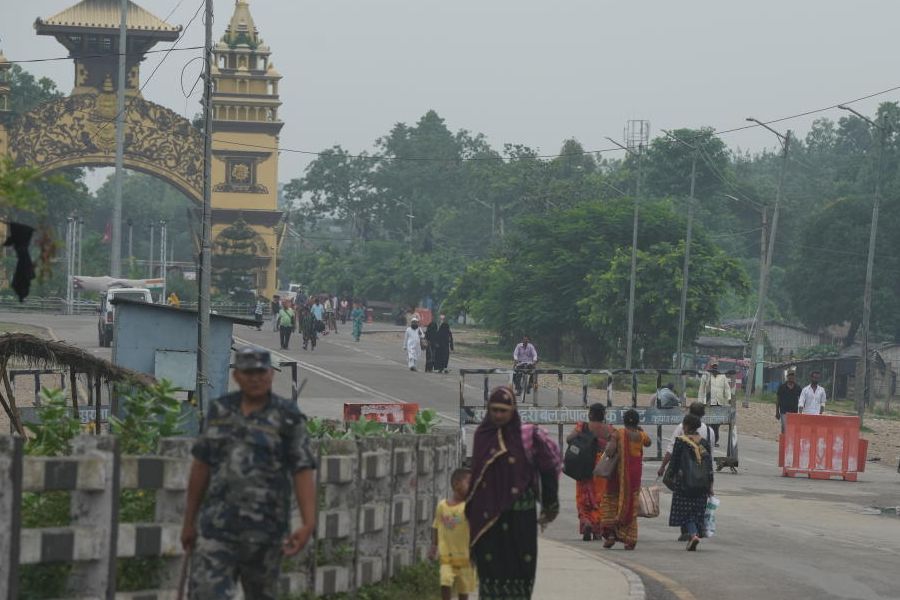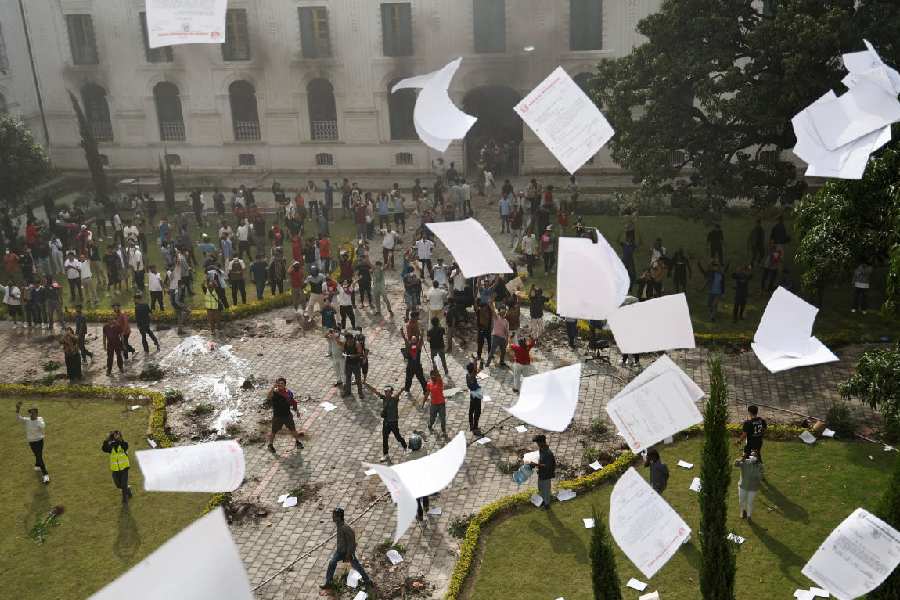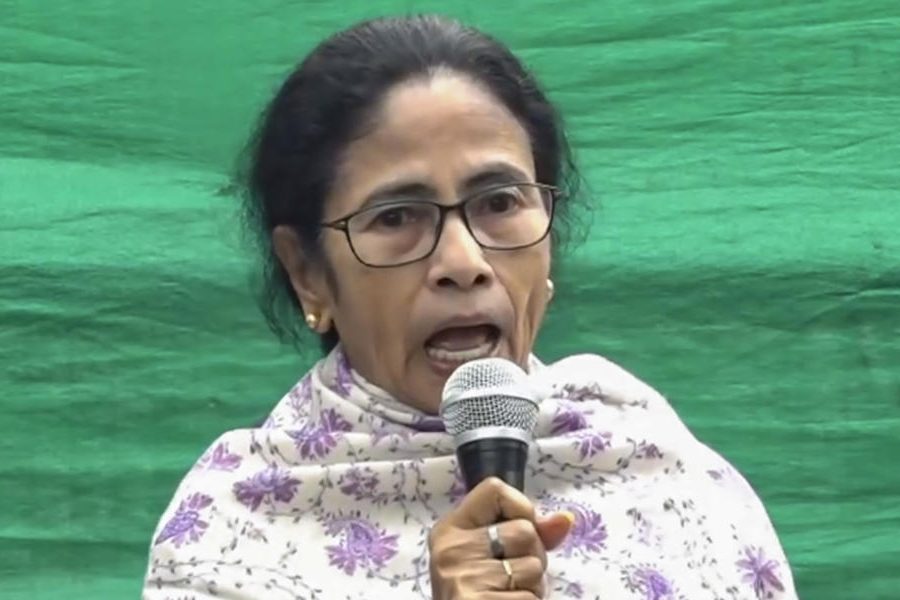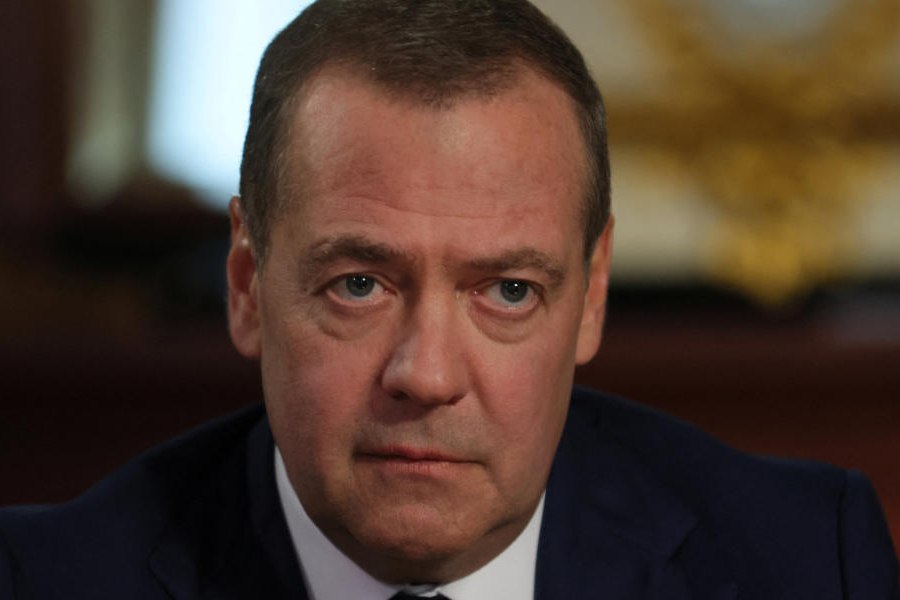The ripples of unrest raging across Nepal have travelled nearly 800 km south to Kolkata’s Sonagachi, Asia’s largest red-light district, where Nepali sex workers are unable to get in touch with their families, amid the political upheaval back home.
On Tuesday, Prime Minister KP Sharma Oli stepped down under the pressure of a fierce student-led uprising that has set Nepal on fire literally and politically.
Demonstrators torched the residences of senior leaders, stormed party offices, vandalised parliament, and left the ruling dispensation rattled. The trigger was the Oli government’s controversial ban on social media, which snowballed into massive public outrage.
A day earlier, police firing on protesters had claimed 19 lives, further fuelling anger on the streets.
The developments have had a ripple effect in Kolkata, especially in Sonagachi, where a section of Nepali women still work in the sex trade despite their declining numbers over the years.
From Kalighat to Howrah and Hooghly’s smaller brothels, Nepali once comprised a major chunk of sex workers, but Sonagachi continues to house several of them.
Now, they find themselves trapped in uncertainty, unable to reach their families or send money back home. Nepal’s airports remain shut, international borders sealed, and communication networks patchy at best.
“I have not spoken to my mother for three days. Every time I try to call, the phone says the network is down. I don't even know if she is safe,” said a sex worker from eastern Nepal who has been in Sonagachi for over a decade.
Another woman broke down while speaking to PTI, “Every month I send money to my two sons who live with their grandparents near Pokhara. This month, I don’t know if I will be able to send anything. If they don’t get money, how will my children eat?”
The immediate concern is the survival of their families back home. The remittances from Kolkata, though meagre, often form a lifeline for households in rural Nepal.
The sudden disruption has not only created financial stress but also aggravated their sense of helplessness.
“Even if we want to go home, there is no way,” said another Nepali woman in Sonagachi. “The border is closed, flights are cancelled. We are stuck here, and our families are stuck there. We are helpless.”
Activists who work with sex workers echoed these fears.
“They are entirely cut off,” said Mahasweta Mukhopadhyay of ‘Amra Padatik’, an organisation that supports the children of sex workers.
“It is natural for these women to be in distress. They cannot contact their families, nor can they be sure if remittances will reach them," she said.
"We will hold a meeting with some of the sex workers and officials of our NGO and try to find a way so that they can speak with their families and send money back home," Mukhopadhyay said.
The red-light district Sonagachi has around 200 Nepali sex workers.
For decades, Nepali women have been a visible presence in Kolkata’s red-light belts, often trafficked across the open border and ending up in the trade under dire circumstances.
Their numbers, however, have declined in recent years, partly due to tighter border surveillance and changing trafficking patterns. But those who remain are among the most vulnerable, doubly marginalised as migrants and sex workers, and crises like the current turmoil in Nepal leave them with no safety net.
Inside Sonagachi’s narrow lanes, the restlessness is palpable. Some Nepali women are seen glued to their mobile phones, refreshing news feeds for updates on their homeland, even if they cannot speak to their loved ones.
“Some women are saying they did not know if their families were safe or not. They kept scrolling their phones to follow news from Kathmandu,” a member of Durbar Mahila Samanwaya Committee, a collective of sex workers, told PTI.
The anxiety among the women mirrors the scale of the turmoil in their homeland.
Hours before resigning, Oli’s private residence in Balkot was set ablaze. Properties of President Ramchandra Paudel, former prime minister Pushpa Kamal Dahal ‘Prachanda’, Communication Minister Prithvi Subba Gurung, ex-home minister Ramesh Lekhak and veteran leader Sher Bahadur Deuba were also attacked.
Nepal’s president has also resigned in the wake of the turmoil, leaving the Himalayan republic in a power vacuum with no guarantee of immediate stability.
North Bengal, too, has been put on alert with security tightened at Panitanki, one of the key transit points on the India-Nepal border. Yet, the fear that the unrest may spill across is now accompanied by the quiet despair of those who cannot return and cannot connect.
For Sonagachi’s Nepali sex workers, politics back home is no abstract theatre of power; it is a lived nightmare that has severed ties of family, livelihood, and identity.
“When we laugh with customers, people think we are happy. But our hearts are burning. We don’t know if our families are safe or not,” said a 35-year-old woman, her eyes welling up.
Except for the headline, this story has not been edited by The Telegraph Online staff and has been published from a syndicated feed.











